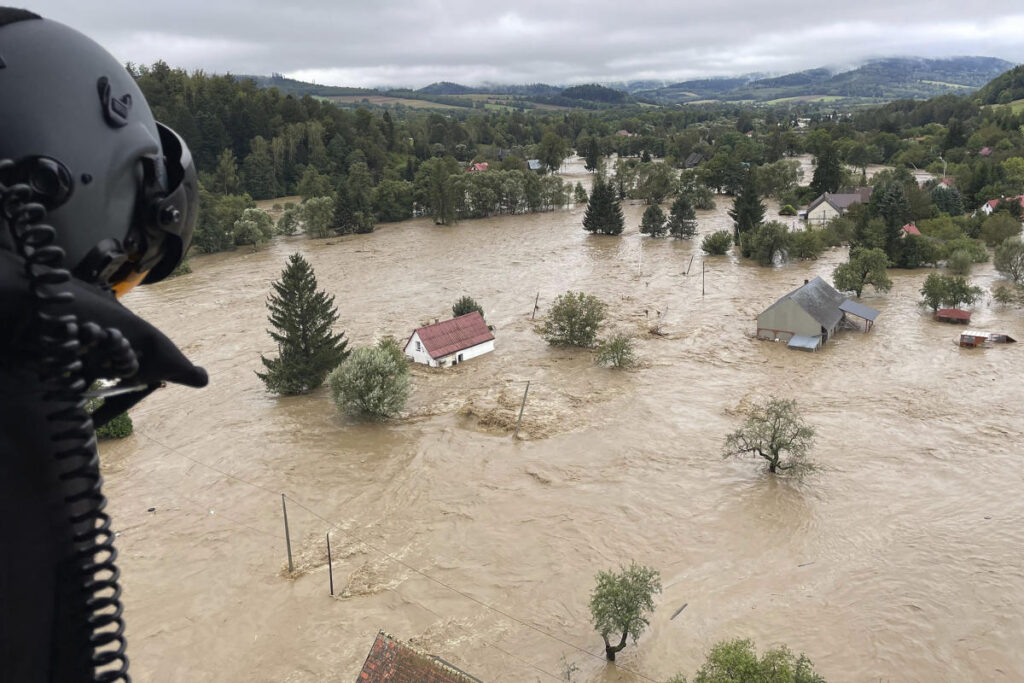WARSAW, Poland (AP) — Soldiers dropped sandbags from military helicopters to shore up riverbanks and evacuated residents as the worst flooding in years spread Tuesday to an area covering 10,000 square kilometers (4,000 square miles). large parts of Central Europe, claiming lives and destroying homes.
Severe flooding has hit much of the region in recent days, including the Czech Republic, Slovakia and Austria. At least 16 people have been reported dead in the floods, which followed heavy rains in the region.
Other places are also preparing for the tidal waves that will hit them, including two gems of Central Europe: Budapest, the Hungarian capital on the Danube, and Wroclaw, a city in southwestern Poland on the Oder, with an old town full of architectural gems.
The government of Hungary of Prime Minister Victor Orban Soldiers were deployed to reinforce barriers along the Danube and thousands of volunteers helped fill sandbags in dozens of settlements along the river.
In Budapest, authorities closed the city’s lower quays, which are expected to be breached by rising waters later in the day. The lower half of the city’s iconic Margaret Island was also closed.
In Wroclaw, firefighters and soldiers spent the night using sandbags to shore up riverbanks. The city zoo, located on the Oder, called for volunteers to fill sandbags Tuesday morning.
“We and our animals will be extremely grateful for your help,” the zoo said in its appeal.
The city said it expected the flood there to peak around Friday, although some had predicted it would happen sooner. Poland’s prime minister Donald Tusk spoke to a crisis team early Tuesday morning and said that meteorologists were making conflicting predictions.
Tusk’s government has declared a state of emergency for the affected region in southern Poland.
South of Wroclaw, residents spent the night fighting to save Nysa, a town of 44,000, after the Nysa Klodzka River burst its banks the day before. Mayor Kordian Kolbiarz said 2,000 “women, men, children, elderly people” came out to try to save their town from the rising waters, forming a human chain passing sandbags to the riverbank.
“We just … did everything we could,” Kolbiarz wrote on Facebook. “This chain of people fighting for our Nysa was incredible. Thank you. We fought for Nysa. Our home. Our families. Our future.”
In the Czech Republic, waters are receding in the two worst-hit northeastern regions. The government has approved the deployment of 2,000 troops to help with the clean-up effort. Damage is expected to run into billions of euros.
The Czech government has also helped local authorities organize regional elections on Friday and Saturday, as several schools and other buildings serving as polling stations were badly damaged. However, a planned evacuation of about 1,000 people in the town of Veseli nad Luznici may be postponed, as water has not yet reached critical levels.
___
Associated Press journalists Justin Spike in Budapest, Hungary, and Karel Janicek in Prague contributed to this report.

